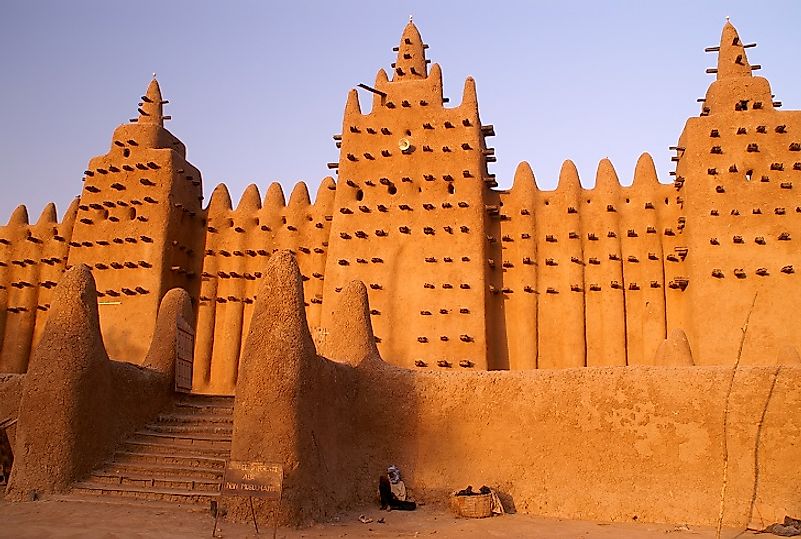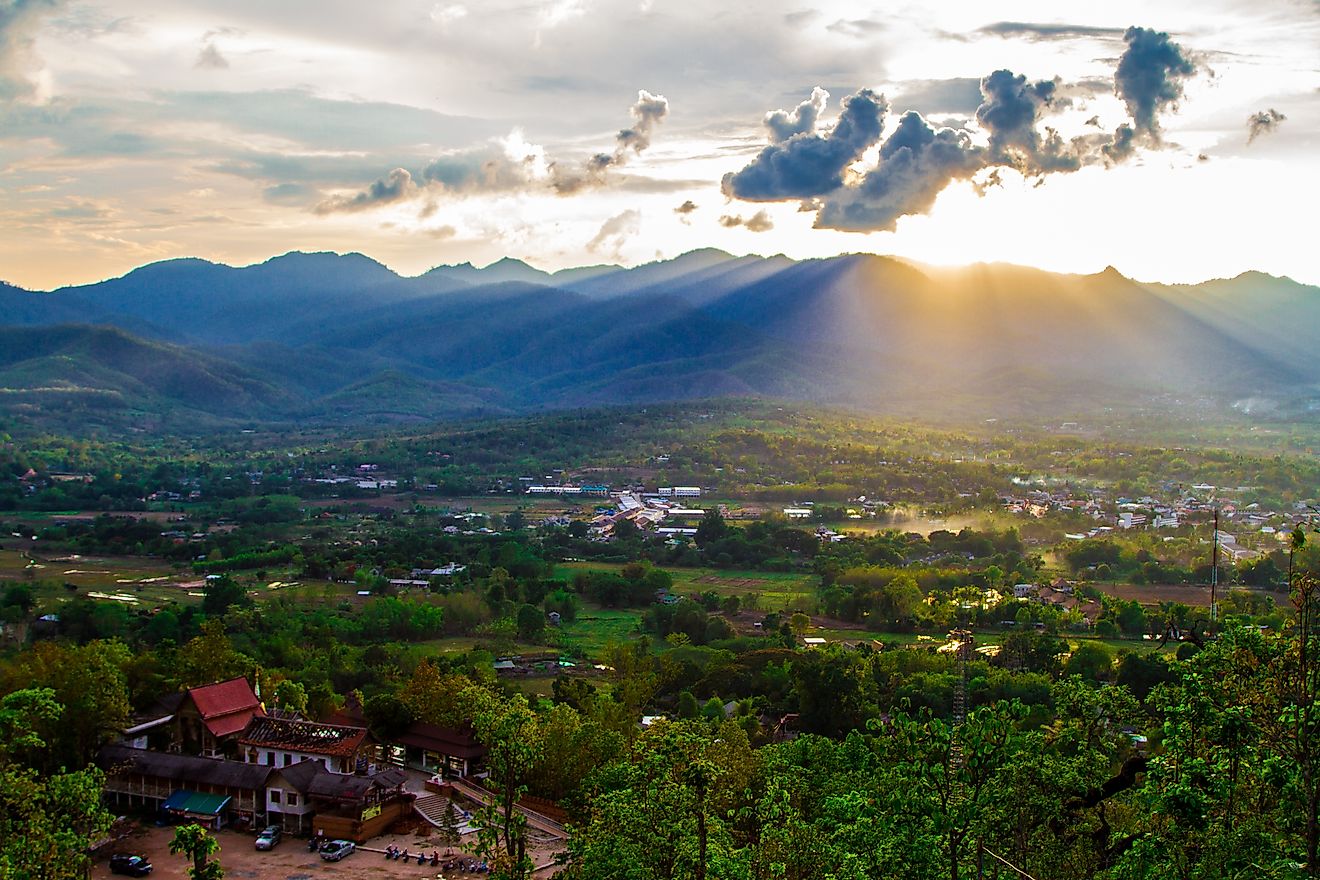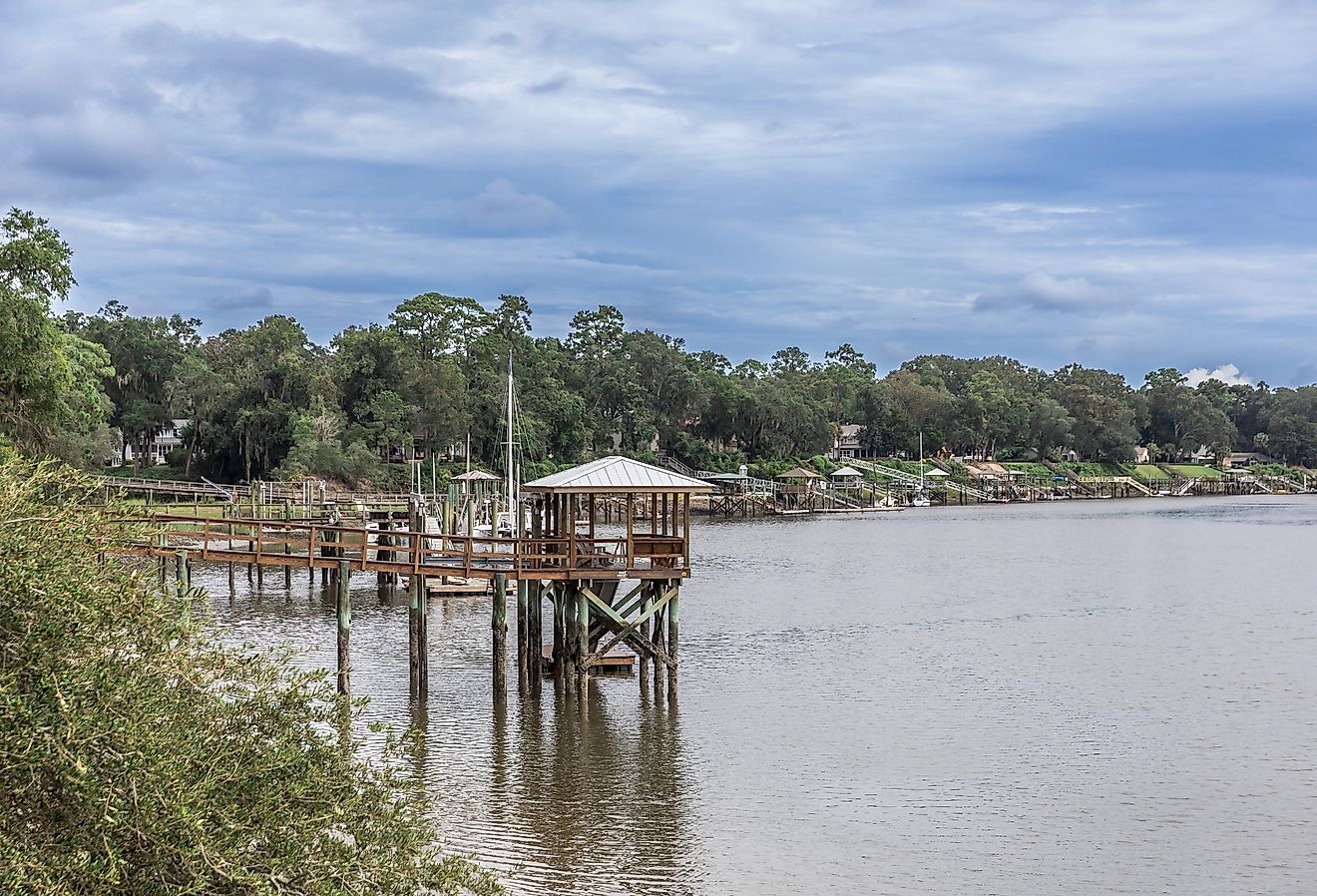Timbuktu, Mali

5. A Hearth Of African Empires
Timbuktu, a UNESCO World Heritage Site inscribed in 1998, is a city in Mali in West Africa, is associated with a rich history and culture. The Niger River flows 20 kilometers to the south of this city and its northern borders are formed by the Sahara Desert. The city is currently inhabited by a population of 54,453 people (as per the 2009 census) and serves as the capital of the Timbuktu Region of the country. For ages, the city has served as the heart of powerful African empires. The city, lying at a crucial point in the trans-Saharan ancient trade route, was conquered and re-conquered by several imperial powers since the 12th Century with an intention to tap its economic potential. For several centuries, Timbuktu also served as the center of Islamic scholarship and learning.
4. Rise To Power And Achievements
Several pieces of archaeological evidence of Iron Age settlements, dating back to the 5th Century BC, have been discovered at Timbuktu. It is believed that such settlements flourished here until the 10th or 11th Century AD. From the 12th Century onward, Timbuktu became a part of the ancient African trade route and flourished greatly with wealth generated by trading ivory, slaves, gold, and salt. In the 14th Century, the city became a part of the ancient Mali Empire. Since then, several kingdoms and tribes tried to capture Timbuktu. In the 15th Century, the city came under the temporary control of the Tuareg tribes but soon was annexed by the Songhai Empire in 1468. In the next century, Timbuktu served as the capital of the Moroccan Empire. In all these years, the city underwent major cultural upheavals. Several architectural marvels including mosques and mausoleums were built in the city between the 14th and 16th Centuries. Today, the ruins of these buildings reminds tourists of the city’s glorious past.
3. Religious Significance
In its golden days, Timbuktu served as one of the major centers of Islamic learning in the African world. Renowned Islamic scholars from Cairo, Persia, and Baghdad would reside in the city, preaching Islam and also conducting research on various aspects of science and theology. 25,000 students lived and learnt about Islam, science, medicine, astronomy, and law at the universities and madrassahs in the city. Thousands of copies of Islamic manuscripts were published here and books arrived from other parts of the advanced Muslim world to Timbuktu for use by the scholars settled here. Today, though none of this old glory remains, the ruins of the impressive mosques in the city and the last few saved ancient documents and texts remind us about the influence wielded by Timbuktu in the ancient Islamic world.
2. Decline and Demise
Gradually with world politics changing and with the change in trade patterns, Timbuktu started losing its glory from the 17th Century onward. During this time, several invading tribes governed the city. In 1893, Timbuktu came under the rule of the French Empire. From then on, Timbuktu never recovered again. Even after becoming the part of the independent African country of Mali, the people of the city faced impoverishment. Increased desertification and loss of the importance of trans-Saharan trade route were primarily responsible for the decline of the city.
1. Current State and Conservation
Today, the government of Timbuktu is struggling to attract tourists to this historical city. With widespread poverty and lack of funds, there is an urgent need to develop a stable tourist inflow to the city to aid the economy of the region. Encroachment of modern settlements into the historical sites also needs to be checked by the concerned authorities. The dire state of the World Heritage Site of Timbuktu forced the UNESCO to enlist it as a World Heritage in Danger in 1990. However, after major repair and renovation work conducted by the government, Timbuktu’s mention in the danger category was removed. In 2012, the city faced a new threat from Islamist militants who destroyed a number of shrines and tombs in the city claiming that idolization of any form is against the principles of Islam.











